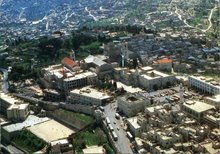Call for Papers
Research project on
Religion, Human Rights and the Palestinian Draft Constitution:
Lessons of Emerging Arab Democracies for Palestine
Institute of Law, Birzeit University
Of the most important elements constitutions deal with and specify are the type of government and mechanisms for human rights protection. Constitutions of a large number of Arab countries have endorsed Islam as state religion, and given Shari’a a unique status as a source of legislation, while also recognizing, to varying degrees, international human rights. This has always been subject of dispute between secular and religious movements. In the wake of recent revolutions in Arab countries, this has emerged as one of the key and thorny issues in developing constitutions in these countries, as current discussions in neighbouring Arab countries tell.
Recent revolutions have put Islamic, religious movements at the heart of government, and these movements bring with them calls for increased role of Islam in public life. But the same revolutions which brought these movements to power have started with demands for justice, democracy and respect for dignity and human rights. This call solicits papers which shed light on these developments, in an attempt to answer the following core questions:
1. Is the clash inevitable between endorsement of Islam as state religion and source of legislation, and demands for respect for internationally-recognized human rights? How are Arab ‘spring’ countries dealing with this dilemma, what are the prospects for respect for human rights under such scenarios, and what lessons are there for Palestine’s constitution drafting process? Papers could focus on the situation in one Arab ‘spring’ country, or compare the proposed path in more than one country, in each case highlighting the potential of arrangements employed or proposed on furthering (or limiting) enjoyment of human rights.
2. What modalities for the diffusion of state-religion issues have been employed in other countries? What impact did such modalities have on respect for human rights? How relevant (or not) these are for Palestine? This could include a survey of the issues and modalities employed, in any number of countries, and examination of the relevance to our situation.
3. How does the process through which the Palestinian basic law was developed compare to the process through which the draft constitution was produced, including in terms of relevant discussions, trade-offs, and content? To what extent the situation which has developed in the region post Arab ‘spring’ will impact the current constitution drafting process, and what impact it could have on the bill of rights section of the draft constitution? Papers could also examine the impact of different scenarios on a particularly relevant human right (such as the right to equality) or a single piece of legislation (say the criminal law or draft law, or the draft family status law).
Researchers are encouraged to suggest addressing additional questions, or addressing above questions from different angles.
Papers may be selected for presentation during a conference to be organized in Ramallah, and/or Gaza, and may be edited for publication, including in electronic form. Authors of accepted papers will receive an honorarium to cover reasonable expenses.
Important dates:
- By 15 July 2012: Abstracts in either Arabic or English, no longer than 500 words, should be sent to iol.research@birzeit.edu. Early submission is encouraged. Abstracts will be reviewed as soon as they are received.
- By 30 September 2012: First drafts, between 5000-8000 words, should be submitted for review.
- By 30 October 2012: Final drafts should be submitted.
- Mid November: expected date of the conference, during which selected papers will be presented.


No comments:
Post a Comment